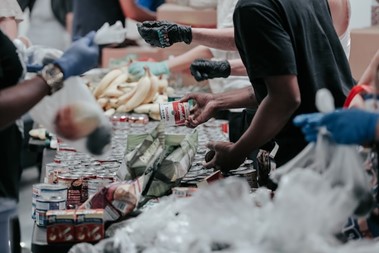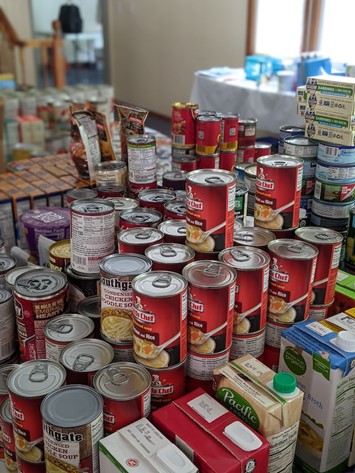
Opened over 40 years ago, the Soup Kitchen of Boynton Beach, Florida, now serves upwards of 1,000 meals a day.
This group has taken to the road for its Soup Kitchen Meals on Wheels program, providing household supplies to immigrants, refugees, and migrant workers as well as offering infant care assistance with its Taking Care of Babies program.
For an often overlooked part of Boynton Beach’s population, the Soup Kitchen is one of the few places that residents in need can rely on to make ends meet. Over 100 years ago, the Great Depression directly correlated with the rise of soup kitchens in the United States.
Today, Daniel Swersky explains that soup kitchens are still here to serve the same purpose — making sure individuals and families have access not just to what they need, but what they deserve.
And it’s because of its hundreds of volunteers that Boynton Beach’s Soup Kitchen will likely remain open for decades to come.
A Soup Kitchen’s Big Benefits
America may still be the richest country in the world, but more than 34 million residents cope with hunger every day. This includes 1 out of every 8 children.
This is who thousands of soup kitchens, shelters, and food pantries work to assist in small communities and big cities across America. It’s the volunteers and donors who keep them afloat and step up to help their community.
While the majority of soup kitchens stress their mission of helping the homeless, soup kitchens have grown to offer so much more.
The Atlanta Mission opened during the Great Depression and still provides hot meals to this day. In the 1960s, it became the first organization to focus on the unique needs of homeless women. It now provides addiction recovery, shelter, counseling, assistance with finding jobs, educational services, and spiritual guidance.
In 2022 alone, the Atlanta Mission served over 562,000 meals, lead nearly 2,000 life skills classes, and provided 187,000 nights spent with a real bed to sleep in.

Evolving Needs
Despite the growing epidemic of food insecurity in the U.S. and constant struggles to secure funding, soup kitchens have never given up. Instead, their impact is immediately felt during new challenges.
In 2020, the COVID-19 pandemic shed a bright light on the pivotal role of soup kitchens. The 11% rate of food insecurity in the United States was unchanged during the first year of the pandemic, a reflection of how soup kitchens can still make a difference even when the need grows.
By the end of the year, 92 million boxes of food were given to food banks, charitable organizations, and soup kitchens through the United States Department of Agriculture’s Farmers to Families Food Box program.
Transformations
For the millions who use them, soup kitchens are often the only place they can find food for that day.
Besides a good meal, soup kitchens lift up entire communities in immeasurable ways. They often help with job training and offer toys and books to children. Hungry and homeless children are far more likely to develop illness, depression, and behavioral issues, but soup kitchens diminish these risks.
At the Boynton Beach Soup Kitchen, anyone who comes through the door gets soup, a produce box, and two hot meals a day. Hundreds of volunteers work every day to make sure that this won’t ever change.



